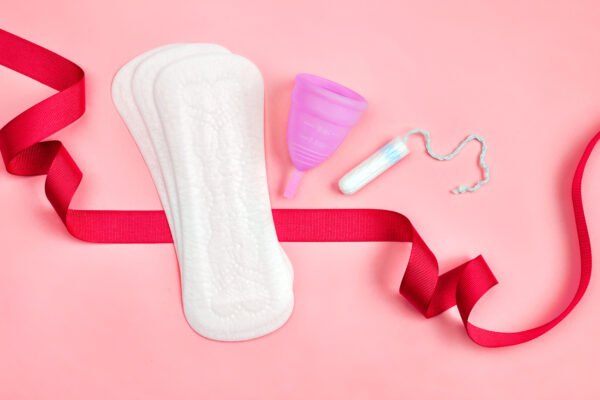In Indiana, candy bars are classified as a necessity, meaning they are exempt from the state’s sales tax. Yet, period products – items that so many people need to function in their daily lives – are subject to the sales tax because they are considered a “luxury” product. While the tax on menstrual products is not a new concept, the momentum against the period tax has grown, resulting in 26 states plus Washington D.C. that have ended the tax on period products. There are another five states that do not have a state sales tax.
In fact, Indiana has the highest sales tax on period products in the nation, at 7%, and some legislators want to see this changed. In the 2025 legislative session, Sen. Shelli Yoder authored SB 173, which aims to remove the state’s tax on period products.
For decades, people who need menstrual products have been forced to pay a “luxury” tax on items that they cannot boycott or stop buying. For the more than 1 in 4 Hoosiers that are considered to have an income below the self-sufficiency standard, the state’s additional 7% tax can put these products out of reach.
A 2023 survey revealed that approximately one in four teenagers who menstruate in the U.S. cannot afford menstrual products. This lack of access often prevents them from attending school or work, placing these vulnerable youth at a significant disadvantage compared to their peers. While eliminating the period tax would be a step in the right direction, additional measures—such as providing free menstrual products in school restrooms—are essential to fully address this issue.
In 1981, Minnesota was the first state to overturn the state’s sales tax on period products, followed by Pennsylvania a decade later.
The elimination of the period tax did not pick up speed until 2016, when Illinois and New York ended their own period taxes. In the 2023 legislative session, Texas was a notable state to overturn the tax, followed in 2024 by South Carolina. This brings the total number of states that have eliminated their peroid tax to 26. It’s time for Indiana to join them.
Another area where Indiana needs policy reform, is incarcerated Hoosiers’ access to menstrual products.
Inside Indiana’s prisons, access to these products is tenuous, putting incarcerated people in an impossible position. According to the Indiana Department of Corrections' Manual of Policies and Procedures;
“No offender shall be required to go without the basic hygiene items, as found in the personal hygiene kits and including toilet paper and feminine hygiene items in female facilities, solely due to lack of funds to purchase these items. Facilities are not required to provide replacement hygiene items to offenders who choose to spend their funds on commissary items that are not essential or required for the offender’s well-being.”
In other words, the Indiana Department of Correction is required to provide menstrual products only if the person who is incarcerated can’t afford them — but if the person were to buy a fan, bag of chips, or a pair of socks and are left without money for period products, then they must go without them.
On top of this, incarcerated people are subject to disciplinary action "if their hygiene deteriorates because of a lack of access to period products by purchasing items “not necessary for personal well-being.” With all these stipulations, it is important to note that many prisons supplying period products rely on donations, so even if a person qualifies for supplied products it does not mean they will receive them.
While reform in Indiana prisons is desperately needed, we support SB 173 as a critical first step, because eliminating Indiana’s period tax is a matter of gender equality.
The period tax is a textbook case of discrimination, and our state legislature owes it to every Hoosiers to alleviate this extra, unnecessary financial burden.

